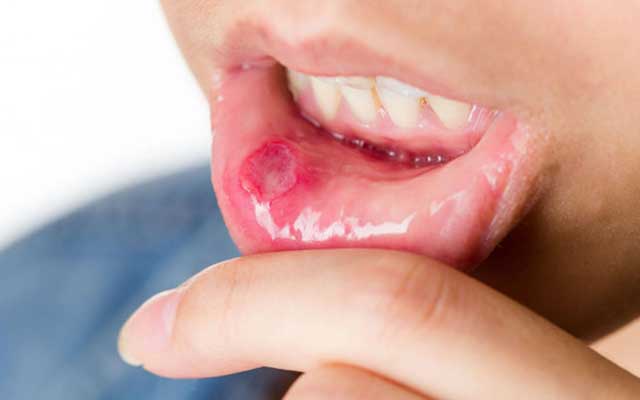An oncologist uses a combination of chemotherapy, radiation and/or surgery to treat cancer. These therapies have some adverse side effects. One of them is the development of painful mouth sores, known as oral mucositis. This has emerged as one of the most debilitating and dose-limiting side effects of cancer therapy, with recent advancements in the prevention and management of other complications related to cancer treatment, such as nausea and neutropenia (low white blood cells).
Causes
The main risk factors for the development of oral mucositis are high dose chemotherapy and localized high dose radiation therapy to the head and neck region for the treatment of head and neck cancer and lymphoma. The rapidly dividing cancer cells are the main target in these treatments, which also unintentionally affect normal healthy cells, which rapidly turnover, such as the oral mucosa lining of the inside of the mouth. The integrity of the oral mucosa gets affected as a complicated series of biological events are triggered. There is the formation of painful ulcerations when there is a minor trauma to the mouth from speaking, chewing and swallowing as it is sufficient to breakdown the mucosa. A cancer specialist in Kolkata advises the individuals undergoing chemotherapy or radiation therapy to eat a soft or liquid diet. You cannot prevent mucositis with antibiotics or antiviral medications and it does not pass to another person as it is not an infectious process.
Impact
Before the visible tissue changes in the mouth and the throat, there are symptoms of discomfort and pain. There may be distinct areas of redness (erythema) in the earliest stages. Painful ulcerations can form from the red areas and they normally appear as round or linear yellow/white plaques. The sites that are most commonly affected are the insides of the cheeks and lips and the sides and the underside of the tongue. There may be mild discomfort because of small ulcerations whereas there is so severe pain that causes difficulties in eating and drinking when there are larger and more extensive ulcerations. There is the use of feeding tubes to provide the patients with adequate nutrition and hydration when severe cases of ulcerations occur.
Treatment
When you are recovering from oral mucositis, it may help if you make some changes in your diet. The best head & neck cancer doctor in Kolkata can ask you to avoid spicy, salty, acidic, dry or hot foods as these can irritate your sore issues. It will be easier for you to eat non-irritating foods include milkshakes, puddings, oatmeal and noodles. There are some other steps that you can take like eating more protein, avoiding alcohol and increasing your fluid intake. The doctor can also prescribe some medications, which can give you relief.

